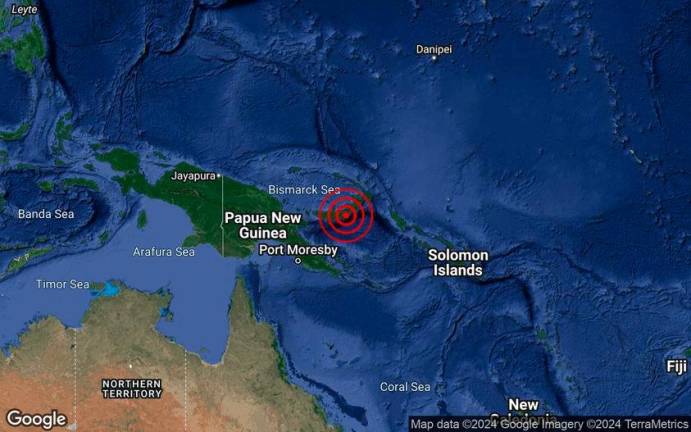WHAT is the scale of the economic disaster wreaked by Covid-19? Around the world, two-thirds of small business owners have reported that their cash will run out if a lockdown is to stretch three months. More than a third of the world’s population can survive for only three months on savings and sale of everything they have, if they lose their regular source of income permanently.
French President Emmanuel Macron put on combat fatigues last March and declared six times in a televised address that “we are at war” and “the enemy is there, invisible, elusive, and it’s making headway”. The same month, our own prime minister, Tan Sri Muhyiddin Yassin told all Malaysians: “We are a nation at war with invisible forces.”
Who is this invisible enemy that we are fighting? It turns out that the enemy is not SARS-CoV-2, the coronavirus behind Covid-19. The enemy is anyone human and is highly visible. We are looking at this war from the animal viewpoint. In 100 years of conflict with nature, humans have eliminated more than 500 species of land-living vertebrates. Another 600 will perish over the next 20 years, given the rate of human encroachment on forest land.
Each animal plays a necessary role in its ecosystem – as predator, prey, or pollinator. The role of pollinator is played by flying insects. Without them, most flowering plants including farm crops will die and that means far less oxygen for humans to breathe in and far less food. Insects are vanishing even faster than vertebrate animals as the chopping down of forests and the spraying of pesticides on cropland affect them most.
This is the background of the Covid-19 pandemic. It is not SARS-CoV-2 making war on humans, but humans making war on nature. The relationship between animals and people has grown increasingly combative with massive population growth from 1.8 billion people in 1920 to 7.8 billion people in 2020. With the numbers going up to 10 billion, we are leaving no tree unchopped as farms expand and natural habitats turn into human settlements.
Ecologists have pinpointed the Amazon rainforest as a huge coronavirus reservoir-in-waiting, as 1,200 sq km of jungle have already been cleared in just the first four months of this year. Forest clearing is also resuming in Malaysia with the loosening of MCO rules.
More than 60% of all human diseases are zoonotic in origin (passing from animal to people), especially the recent ones with around five new threats emerging each year. The Global Virome Project estimates that there are nearly 1.7 million undiscovered viruses inhabiting the animals, and many that are harmful to humans will take the path blazed by SARS-CoV-2.
The risk is not only from wildlife hunting, capture, and slaughter. Farmed animals have also been known to get infected, and livestock frequently become intermediate or amplifier hosts for pathogens.
Religious preachers exhort people to avoid sin, but fail to mention that we sin against the animals by permitting them to be reared in factory farms under horrendous conditions that suppress their immunity and make them more susceptible to infections. It is sinful to kill animals for any reason other than self-defence or medical research. You may kill mosquitoes, cockcroaches, or rats because if you don’t they may kill you with the pathogens they carry.
Meat eating has long been a questionable practice since the early days of Chinese and Indian civilisations. All six religions indigenous to India and China detest wanton killing. No Jain ever touches meat, the Confucian and Taoist scriptures expound respect for animals, Buddhists intone “May all living beings be well and happy” including non-people, vegetarianism is the mainstream Hindu tradition, and Sikhs keep meat out of the gurdwaras.
Given their record of harmony with nature, India and China should be jointly leading a worldwide “Animal Lives Matter” campaign alongside the “Black Lives Matter” demos. Instead they are too busy engaging in fistfights at their Himalayan border.
The ball rolls to the feet of the UN General Assembly. It should care enough for humanity’s survival to consider banning deforestation and forest burning, prohibiting the capture of wildlife for consumption, and restricting the slaughter of livestock while promoting stem cell lab meat as a substitute for living flesh.
Who will put forward such a resolution? Will Malaysia lead the effort to save humanity by ending this war against nature? We should begin with a discussion on how to stop the world population hitting the 10 billion mark.
The writer champions interfaith harmony. Comments: letters@thesundaily.com














